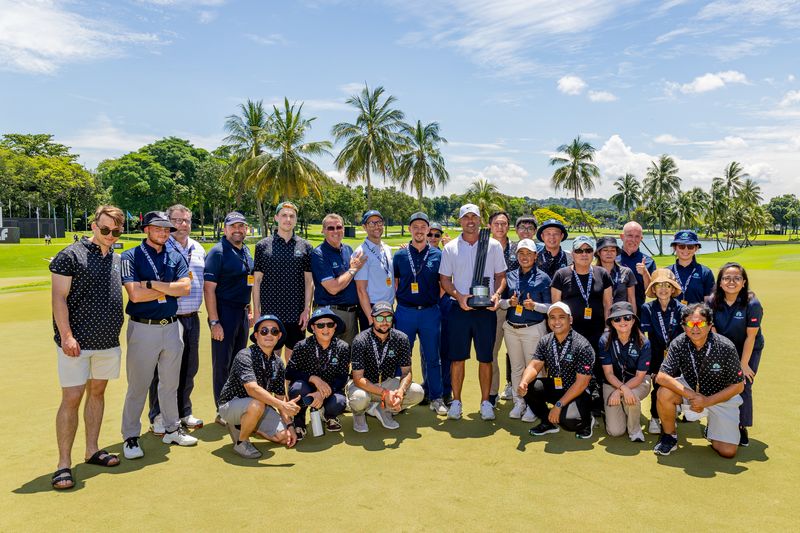
Gaurav Pundir is a qualified forester currently serving as the Golf Superintendent at The Tollygunge Club in Kolkata. He has an impressive 24 years of experience in the golfing industry and is widely recognized as one of India’s most skilled and experienced Golf Course Superintendent / Manager. Throughout his career, he has overseen the maintenance of golf courses at esteemed clubs nationwide, including the Delhi Golf Club and the Bombay Presidency Golf Club. Additionally, he holds a Masters in Business Administration specializing in Human Resource Management and has experience in Watershed Management from working in hilly terrains.


Furthermore, he has achieved a “Certificate of Completion” in “High Standing” for Seminar I (An Introduction to Golf Course Design) and Seminar II (An Advanced Approach to Golf Course Design) under the guidance of Mr. Raymond Hearn, President of Raymond Hearn Golf Course Designs Inc. who is a member of the American Society of Golf Course Architects. He is also the co-author of the book “Trees of Tolly” along with H.B. Naithani, in which he wrote about the 156 species of Trees present in the Tollygunge Club.

Recently, Gaurav Pundir had an enlightening experience working at the LIV Golf event held at the Sentosa Golf Club, Singapore. In an interview with Indiagolfnews.com, he shared his keen observations on the stark differences in work ethics and culture between Indian and international golf clubs, particularly in the quality of machinery and the level of skilled staff. He also highlighted that, currently, there are no professional turf management courses available in India, accentuating the importance of this skill set in the global golfing industry. His insights provide a valuable perspective on the industry’s global dynamics.
At the LIV Golf event, Gaurav Pundir’s exceptional leadership skills were put to the test as he was entrusted with the responsibility removing dews in the morning hours and mowing all 18 fairways with a team of 5 fairway mowers in the afternoon. This is one the best experience of mowing all 18 fairways every day with 05 fairways operators including myself before the tournaments were about to commence and during the course of event. He not only emphasized the significance of teamwork and their systematic approach in mowing the fairways and conducting the mowing procedure but also fostered a culture of open communication and shared experiences. His contentment with his work and delight with his team’s efforts reflect his strong leadership and ability to inspire his team.
He also mentioned that at Sentosa Golf Club, approximately 76 dedicated staff members from various parts of the world, including Singapore, Malaysia, and India, work together. Each department operates systematically and efficiently. However, there is no clear distinction and allocation of work in India, and everyone has a hand at everything, creating pandemonium. Indian courses largely face a crisis in micro-management of skilled and unskilled laborers whereas the work culture abroad is far more rigid yet productive and disciplined.
At Sentosa, all the staff had to report at 4:20 a.m., and at 4:30 a.m. a briefing meeting took place. After the meeting, all turf care machinery was prepared for work. Before mowing the grass, the dedicated staff cleaned the area and mowed the greens. The greens were mowed twice with 02 different mowers. This was followed by blowing and cleaning up any remaining grass debris. After that, the greens were rolled by 02 different rolling/polishing machine. At each stage of the mowing process, the playing turf was inspected, and the mechanics coordinated with the mowers. There was no room for error as it would be broadcasted on television. During his time in Singapore, he befriended Andrew Johnston, the General Manager, Director of Agronomy and Rodney Mckeown, the Golf Superintendent, at the Sentosa Golf Club. The Sentosa Golf Club pioneering methodologies in waste management and an agronomic best practices strategy, all of which have helped Sentosa Golf Club fast become recognised as the world’s most sustainable golf club. He gained a lot of experience and also shared a lot with them.
Gaurav Pundir hopes that more and more people from India gain this ‘abroad-like’ exposure and valuable experiences in the field of course management within India’s golfing infrastructure, allowing the sport to grow in the countr
Comments